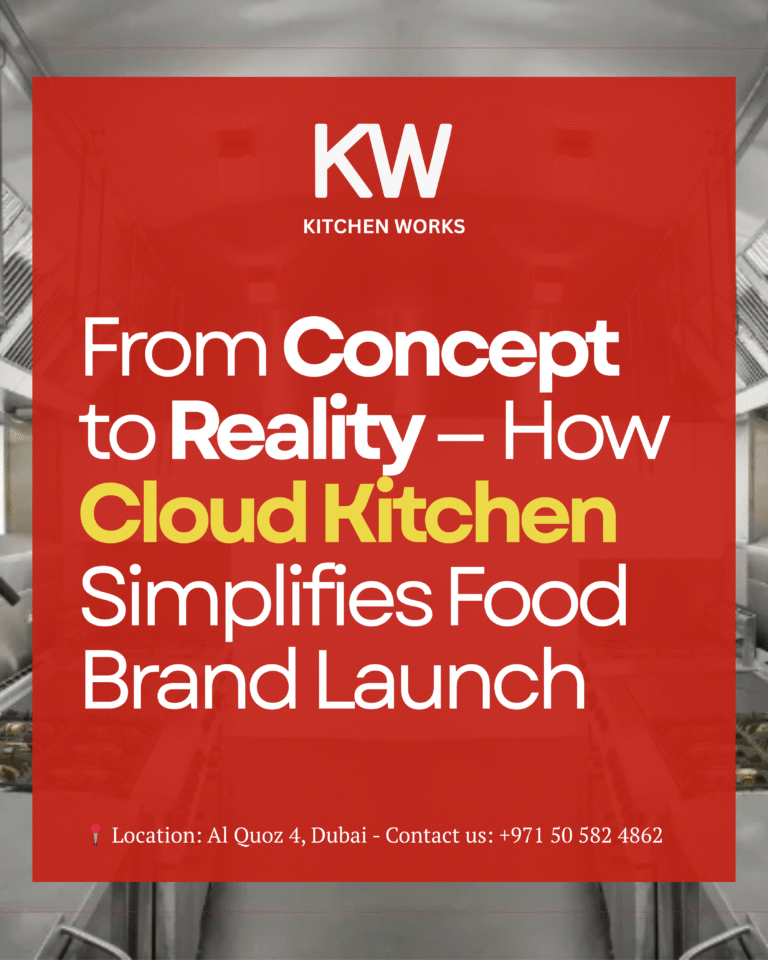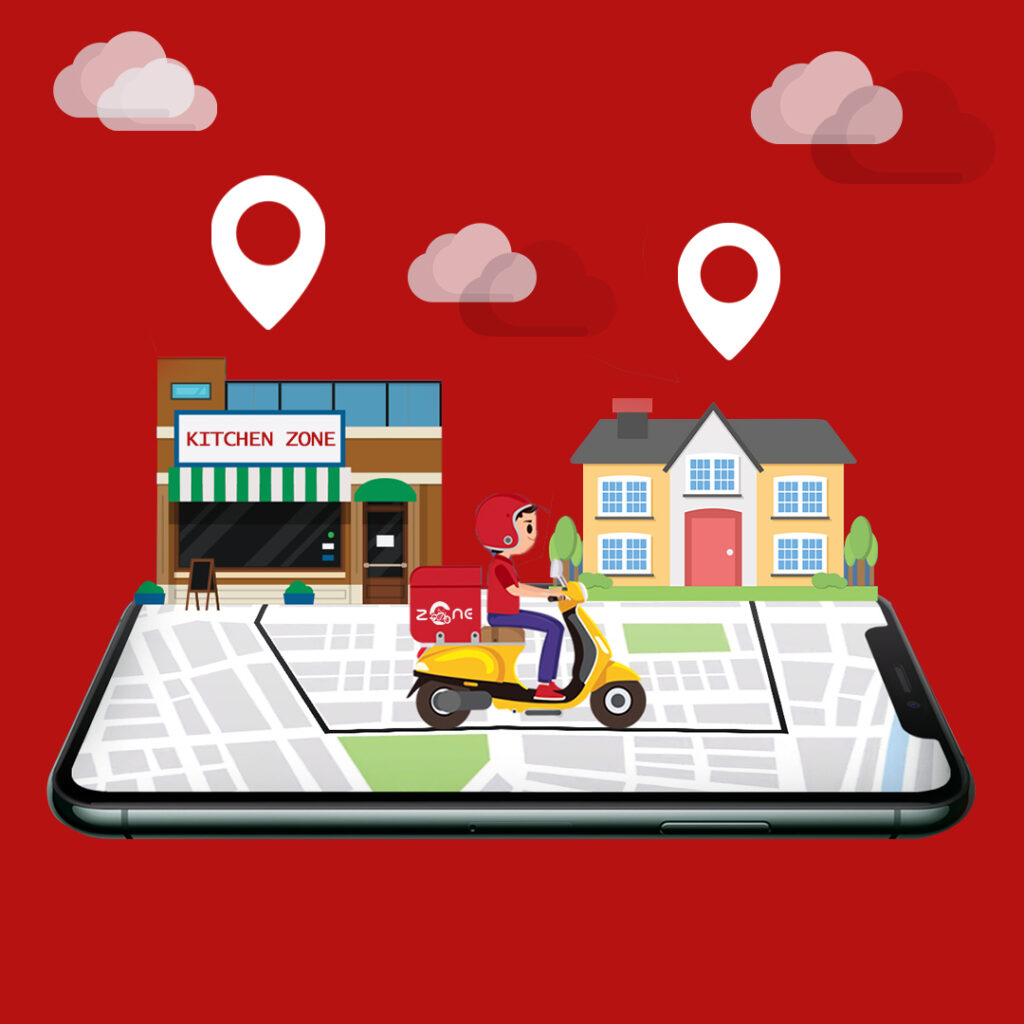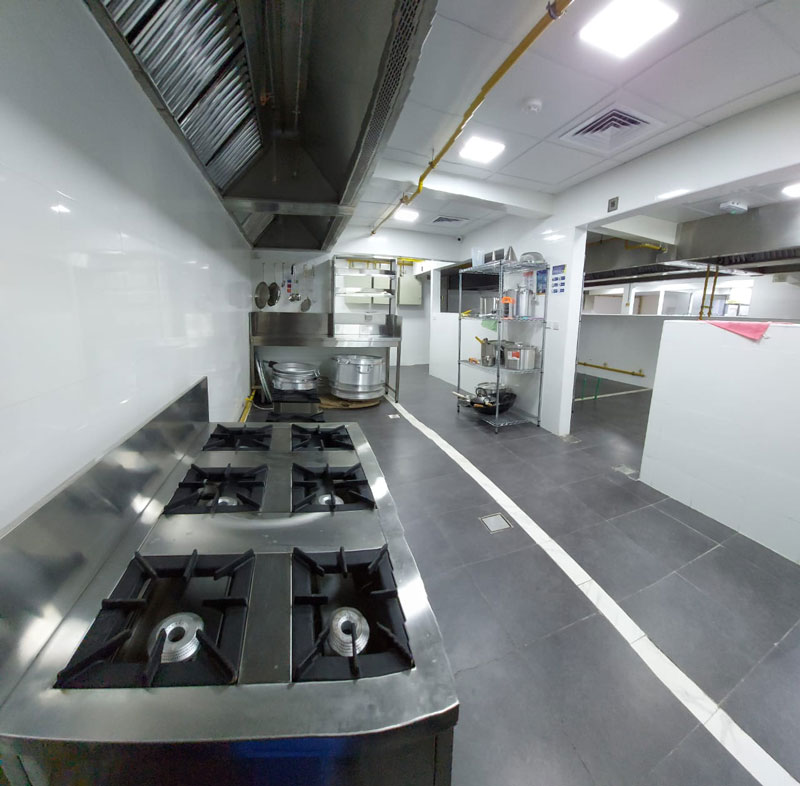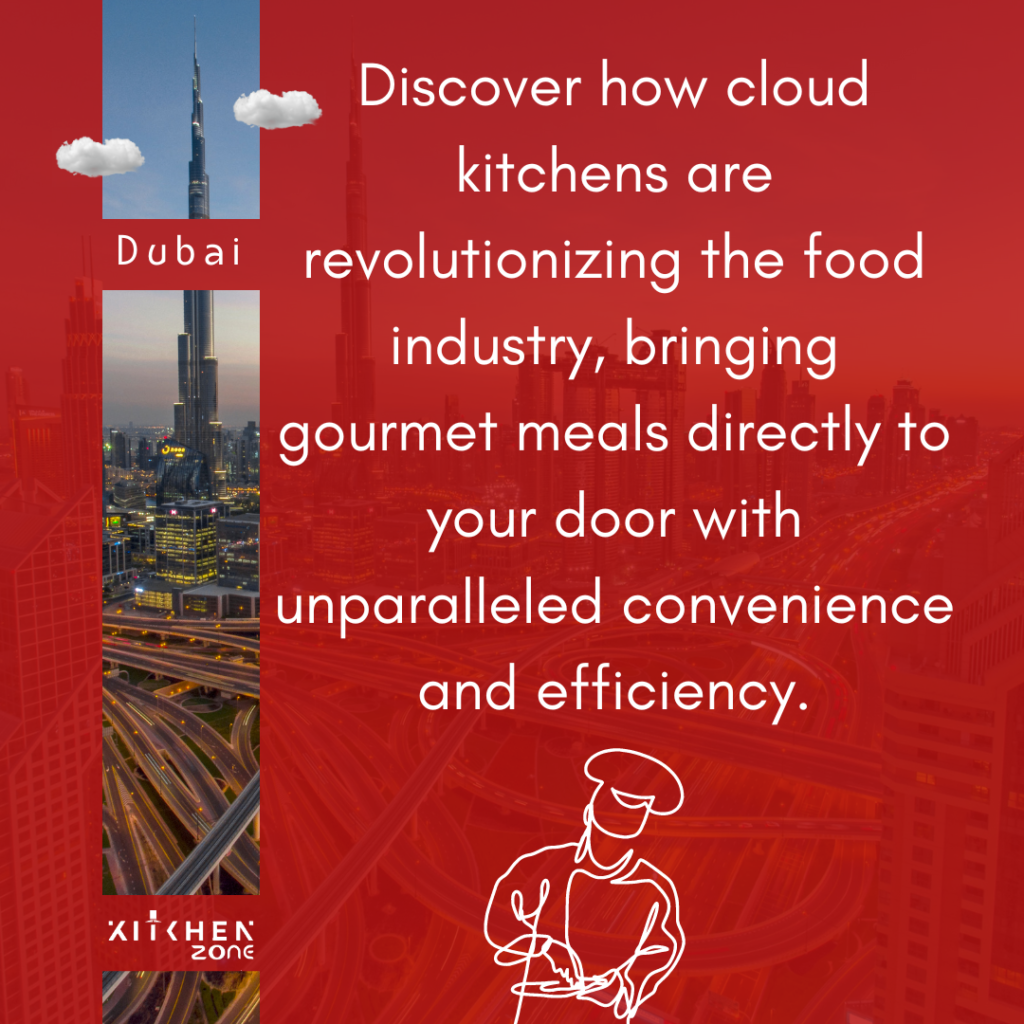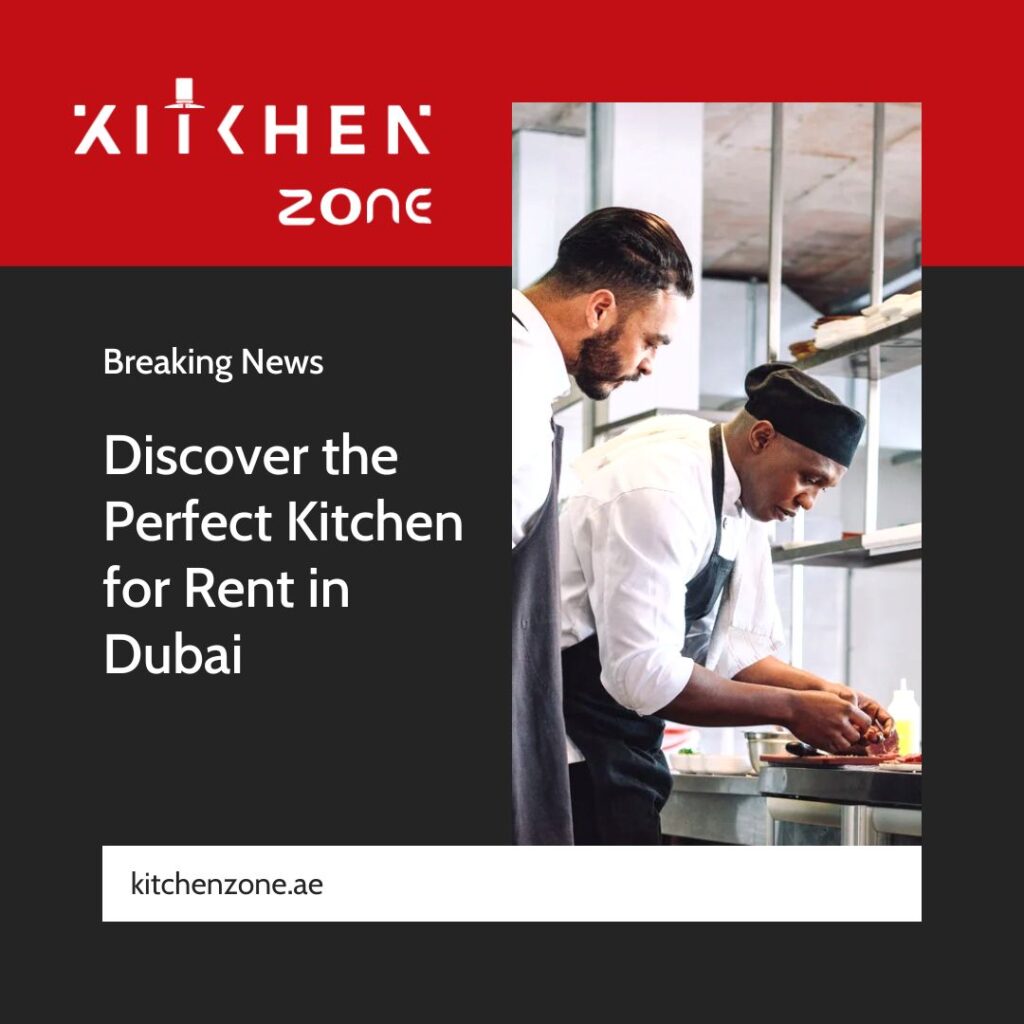Table of Contents
- Introduction
- What are Cloud Kitchens?
- The Rise of Cloud Kitchens in Dubai
- Understanding the Cloud Kitchen Model
- Why Dubai is the Ideal Hub for Cloud Kitchens
- From Concept to Reality — How Cloud Kitchens Simplify Food Brand Launch
- Step 1: Market Research and Brand Ideation
- Step 2: Recipe Development and Testing
- Step 3: Production and Scaling
- Step 4: Marketing and Delivery Integration
- Challenges in Cloud Kitchen Operations
- Cloud Kitchens and Technology
- Real-Life Success Stories in Dubai
- Future of Cloud Kitchens in Dubai
- Conclusion
- FAQ’s
Introduction
Dubai has always been a hotspot for food innovation. But with rising rental costs and changing consumer behavior, traditional restaurants are finding it tough to keep up. Enter Cloud Kitchens — the game-changing model transforming how food brands are born and scaled in Dubai.
What are Cloud Kitchens?
Cloud Kitchens, also known as ghost kitchens or virtual kitchens, are delivery-only food production facilities. Instead of running a dine-in restaurant, brands use these kitchens to prepare and deliver meals directly to customers through online platforms.
The Rise of Cloud Kitchens in Dubai
Dubai’s dynamic population and love for convenience have fueled a massive surge in online food delivery. With platforms like Talabat, Deliveroo, and Zomato dominating the market, Cloud Kitchens have become the backbone of the city’s fast-growing delivery ecosystem.
Understanding the Cloud Kitchen Model
How Cloud Kitchen Operate
A Cloud Kitchen functions as a shared cooking space where multiple brands can cook, package, and deliver their dishes. Think of it as a co-working space — but for chefs.
Key Components of a Cloud Kitchen Setup
- Central Kitchen Unit: A fully equipped commercial space.
- Digital Ordering System: Integrated with delivery platforms.
- Data & Analytics Tools: Track performance and customer feedback.
Why Dubai is the Ideal Hub for Cloud Kitchen
Dubai’s Booming Food Delivery Market
With over 60% of residents preferring delivery over dining out, Dubai’s food delivery scene is one of the fastest-growing globally. Cloud Kitchen fit perfectly into this lifestyle.
Government Support and Ease of Licensing
Dubai’s Department of Economic Development (DED) has made licensing smoother for virtual kitchens, encouraging more entrepreneurs to enter the market.
Strategic Location for Food Distribution
Dubai’s central position connects Asia, Africa, and Europe — making it ideal for scaling food brands regionally.
From Concept to Reality — How Cloud Kitchen Simplify Food Brand Launch
Reducing Start-up Costs
No need for prime real estate or elaborate interiors. Cloud Kitchens eliminate heavy setup expenses, allowing you to invest more in marketing and quality.
Fast Launch Without Physical Restaurants
Within weeks, a brand can go from idea to delivery-ready menu without waiting for traditional restaurant construction.
Access to Fully Equipped Facilities
Everything — from industrial ovens to storage — is ready. You simply bring your recipes.
Step 1: Market Research and Brand Ideation
Before launching, Cloud Kitchens help brands analyze customer preferences, delivery trends, and popular cuisines in Dubai. Whether it’s sushi bowls or healthy wraps, data guides every move.
Step 2: Recipe Development and Testing
Many Cloud Kitchens offer R&D spaces where chefs can test and refine recipes before launch. This ensures menu items are consistent, scalable, and cost-efficient.
Step 3: Production and Scaling
Once a brand gains traction, scaling is seamless. Cloud Kitchens allow multi-brand operations — meaning one facility can host multiple concepts under a single umbrella, maximizing profit.
Step 4: Marketing and Delivery Integration
With Dubai’s digital ecosystem, Cloud Kitchens easily partner with delivery apps and leverage social media marketing to boost visibility. Influencer collaborations and data-backed promotions can turn a new brand into a household name.
Key Advantages of Cloud Kitchen for Food Entrepreneurs
- Low Overhead Costs: No rent for dining space.
- Flexibility: Test multiple cuisines and concepts.
- Data Insights: Get real-time feedback on best-selling items.
- Low Risk: Easier entry and exit compared to traditional restaurants.
Challenges in Cloud Kitchen Operations
While Cloud Kitchens are efficient, they aren’t without challenges.
- Competition: Many brands fight for the same delivery space.
- Customer Retention: Without physical presence, loyalty depends on quality and delivery speed.
- Platform Dependency: High commissions from delivery apps can impact margins.
Cloud Kitchen and Technology
Technology powers Cloud Kitchens. From AI-driven demand forecasting to automated order management, innovation ensures efficiency and accuracy.
Smart systems help predict busy hours, manage stock, and optimize delivery routes — saving time and money.
Real-Life Success Stories in Dubai
Brands like Sweetheart Kitchen and Kitopi started in Dubai and are now international success stories. These kitchens manage multiple virtual brands, serving thousands of customers daily through digital platforms.
Future of Cloud Kitchens in Dubai
The future looks deliciously bright. With trends leaning toward eco-friendly packaging, AI integration, and multi-brand scalability, Dubai is leading the next generation of virtual dining experiences.
Conclusion
Cloud Kitchens have redefined how food brands start and scale in Dubai. They’ve made it easier, faster, and more cost-effective to bring culinary ideas to life. For entrepreneurs, this is not just a business opportunity — it’s a revolution in the way people experience food delivery.
FAQs
1. What is the main benefit of Cloud Kitchen for start-ups?
They drastically reduce setup costs and allow faster market entry.
2. Can small businesses start with Cloud Kitchens in Dubai?
Absolutely! Cloud Kitchens are ideal for small and homegrown food brands looking to expand.
3. How much investment is required for a Cloud Kitchen?
Depending on the size, it can range from AED 50,000 to AED 200,000 — far less than a dine-in restaurant.
4. What are the legal requirements to start a Cloud Kitchen in Dubai?
You need a trade license, food safety approval, and a certified kitchen space.
5. Are Cloud Kitchens profitable in the long run?
Yes, when managed efficiently with smart marketing and menu optimization, they offer strong profitability.

